ICAB conference 2024 - Speakers Friday March 1
Chairman of the day, Friday
Arnold Bregt is Dean of Education and professor of Geo-information Science at the Wageningen University. Currently he is also chair of the Task Force ELLS, an alliance of 9 life science universities in Europe.

He will start the second day of the ICAB conference with plenary session: Where are you on the AI line?
(10.00 - 10.50) Parallel session round 1
AI & Education
Ethics of artificial intelligence in higher education
AI and digital tools are becoming increasingly integral to education. However, they do not automatically guarantee better education. To steer digital innovation in alignment with core values of education, such as autonomy, integrity, and inclusion, it is necessary to understand the ethical landscape surrounding AI. In this presentation I will provide a clear look at the ethical aspects of AI regarding study data, online learning, proctoring and generative AI. You will leave with practical insights and actionable recommendations to ensure that AI will support our values.
Speaker

Ajuna Soerjadi has a background in philosophy and specialised in the ethics of artificial intelligence. She is particularly concerned with issues surrounding justice and social inequality in AI. AI applications that have a major impact on people, such as fraud detection, smart cities and facial recognition, often have unwanted discriminatory effects. As the founder of Expertise centrum Data-Ethics, she helps to solve this problem by providing ethical guidance through research and training. She works towards a society in which AI supports a sustainable and inclusive future for all.
Examination & AI
Using GenAI-tools in Higher Education
The impact on assessment
The current availability of GenAI tools raises questions regarding the impact of these tools on our education. Is the aim to have students use the tools to increase the quality of student performance (effect with)? Or is the aim to use the tools to enhance learning and lead to better performance without the tools (effect of)? Both aims have an effect on the assessment. In this workshop, we will discuss these effects on assessment as part of a course design. We offer a way of thinking that could help in questions regarding the use of GenAI in Higher Education.
Speaker

Dr. Ir. Ria Dolfing is a consultant and teacher trainer specialised in teachers’ professional development & curriculum design in science & engineering education. Within this domain, a specific area of interest is the explicit use of system thinking to explain, predict and change properties, functions, and behaviour of biological, engineering, educational and other social systems. "This background allows me to provide consulting and training from different perspectives and at different organisational levels within the university."
Students & AI
How AI influences the organisation, didactics, and content of higher education
The goal of the session is to discuss the interaction between students and AI. First, we will give a brief overview of ISO's stance on AI and students and on the possible ways in which students experience (the consequences of) AI. In the second part of the session, we will discuss some of these topics in an open conversation with the audience.
Speakers


Yorick van der Heiden works as policy advisor at the Interstedelijk Studenten Overleg (ISO), the representative body of over 800,000 students in The Netherlands. As a policy advisor in the field of educational innovation, he works on the digitalisation of higher education, specifically on the impact of AI. In addition to working as policy officer at ISO, Yorick completed the bachelor's degree Biotechnology at WUR and is now pursuing a master's degree in Organisations, Change, and Management at Utrecht University.
AI & Education
“AI-Ready” Curricula - A work session about fostering AI education in bachelor and master programmes
In this working session, we will discuss the possibilities for fostering and enriching AI education within curricula of different disciplines. The motivation is clear: with the growing need for AI in all sectors, not only specialists but also non-AI specialists need to be taught about AI within their own discipline. Besides sound curricula, successful transitions require establishing stakeholders’ commitment from teachers, students, management, and societal partners.
Therefore, the session’s goal is to provide you with insights into challenges, opportunities, and preconditions and to explore various embedding of AI education within the curricula. The session hopes to encourage you to translate this into your own organisation and programme. During the introduction, Willem-Paul Brinkman will start the discussion with examples of projects that embraced this task and the challenges they are addressing.
Speaker
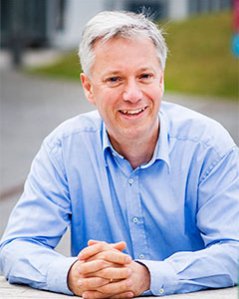
Willem-Paul Brinkman is an associate professor at Delft University of Technology. His research line, Digital Behaviour Change, focuses on human interaction with AI for behaviour change, such as in the context of e-health. Brinkman is also actively fostering AI education at various levels—from local to national. As chair of the working group on Training & Education of the Dutch AI Coalition, he works on bringing together research/applied universities and secondary vocational education. The workgroup successfully compiled an extensive inventory of AI education programs, highlighting 30 exemplary practices in AI teaching, and recently, formulated recommendations for using generative AI tools in education. Within Delft, Brinkman leads the university AI initiative on education, working on the universities’ ambition to offer AI education to all 28.000 university students. Furthermore, as director of studies for the master's degree in data science and AI Technology, he works on preparing the next generation of responsible engineers in this field.
AI & Education
Game 'Best of Both Worlds' by the Special Interest Group AI and Education of Wageningen University & Research
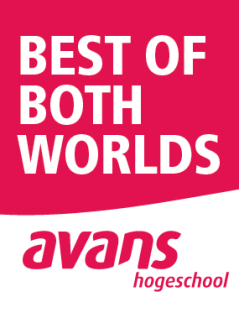
Though technological developments like generative AI (GenAI) are transformative and widespread, open discussions on their added value in education can be difficult since opinions and perspectives vary widely. ‘Best of Both Worlds’ is a game intended to deepen and stimulate these discussions. Based on a practical case, you will consider its learning goals and the GenAI tools that can be implemented from various perspectives, to finally answer some burning questions: Where can humans and AI complement one another? How can we organise this concretely? This session will start with a short introduction to the game and its rules, after which you will split up into groups to play it yourselves. (Game credits: Lectoraat Digitale Didactiek, Avans Hogeschool)
AI & Research
Tour through the NPEC greenhouse
The NPEC Tour is a tour through the NPEC greenhouse, one of the newest greenhouses of Unifarm. In this greenhouse a lot of technology can be found that enables fast and easy analyses of plants. This project is a collaboration with the University of Utrecht and NWO (Dutch Organisation for Scientific Research), to encourage scientific research in the Netherlands.
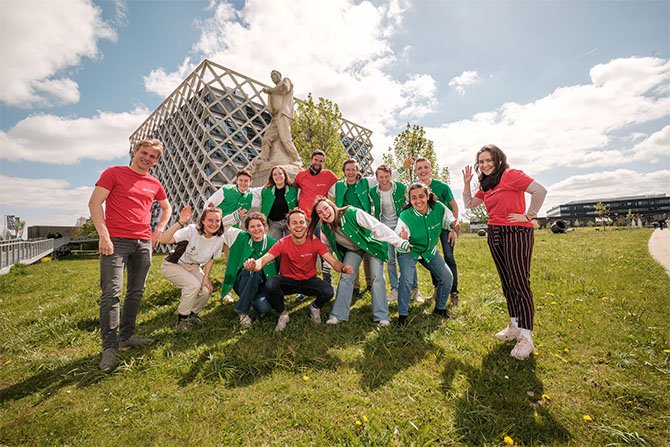
(11.10 - 12.00) Parallel sessions round 2
AI & Education
Smart Insights: An AI-Driven Academic Writing Assessment
The Open University hopes to revolutionise thesis assessment in academia using generative AI. Targeting both academic writing skills and content aspects, we seek to enhance the efficiency and effectiveness of feedback during the thesis journey. This approach promises consistent, superior feedback, aiming to enrich student learning experiences while addressing challenges of AI accessibility and ethical use. The presentation introduces the 'Slim bekeken' pilot project, inviting discussions about feasibility, potential challenges, and recommendations for this innovative venture. In this session we want to open discussions with the audience, to generate ideas for our project and to inspire others.
Speakers
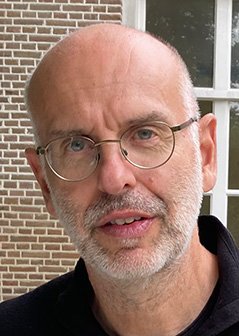
Hubert Vogten, a member of the Expertise Centre for Education of the Open Universiteit, leverages his IT and educational technology background to explore generative AI's impact on education. He plays a pivotal role as one of the project leads for the 'Slim bekeken' initiative.

Examination & AI
The Examining Board and AI
How do you safeguard the quality of assessments when generative AI is freely accessible? What counts as fraud, and can you reliably establish it? In this session we invite Examining Board members and others who are interested in the topic to share their experiences and work out the opportunities and threats that AI developments over the coming years might bring. The moderators will also reflect on these questions, based on their experience with developing generative AI policies at the VU and at WUR.”
Speakers
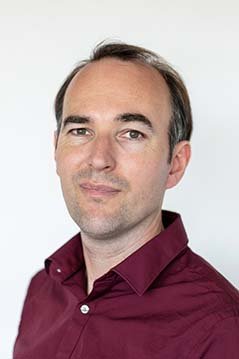
Auke Pols studied Cognitive Artificial Intelligence at UU and did his PhD in the philosophy of technology at TU/e. Currently he works at the WUR as lecturer innovation sciences and as secretary of the Examining Board Social Sciences. On behalf of the examining boards of WUR he participated in a working group to advise the Executive Board on generative AI policies.

AI & Education
The use of generative AI by students in report writing, in preparation of lab classes and in explaining lab results.
Large Language Models (LLMs) like ChatGPT have the potential to deeply affect existing higher education. LLMs can be used to facilitate students in all phases of the so-called ‘research cycle’. We have evaluated the use of LLMs by students in food chemistry related courses for report writing, for hypothesis making, and for finding explanation for results gathered in the laboratory. During this session we will show you how we instructed students in the use of the LLMs, whether and how students have used it and what their opinions are.
Speakers

Bake de Rink (MSc) is a teacher from the Laboratory of Food Chemistry of Wageningen University, being involved in several campus and online courses related to the field of food chemistry. Next to teaching, Bake is amongst others developing digital learning materials for laboratory education. Currently, Bake is investigating the usefulness and opinion of students of LLMs in laboratory education.

AI & Education
How ChatGPT has changed my perspective on science and education
In this talk, Joost de Winter will reveal how ChatGPT and related tools have changed his perspective on research and education: ChatGPT can be used as a human-machine interface in robotics, can be used to accelerate research on human data sources (such as obtained with think-aloud methods), but can serve as a tool for assessing student work. The use of ChatGPT leads to a cat-and-mouse game between student and teacher, which has far-reaching consequences for the dynamics of human interaction, the meaning of “meaning”, and the value of the scientific and educational system. The presentation will also include an interactive element.
Speaker
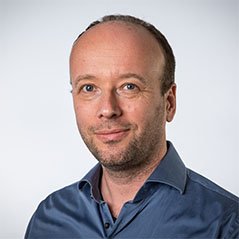
Joost de Winter is a professor at the Delft University of Technology, faculty of Mechanical Engineering. His research focuses on Cognitive Human-Robot Interaction, specifically on developing touchless interactions between humans and machines. From 2021 to 2023, Joost was the director of studies of the new MSc program in Robotics.
AI & Research
AI in bioinformatics research & education
Over the past years, deep learning has had an enormous impact on bioinformatics. I will introduce some recent developments in the field, including our own work. I will also discuss the ramifications of deep learning, particularly Large Language Models, on teaching students programming skills.
Speaker
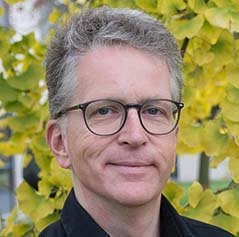
AI & Research
Tour through the NPEC greenhouse
The NPEC Tour is a tour through the NPEC greenhouse, one of the newest greenhouses of Unifarm. In this greenhouse a lot of technology can be found that enables fast and easy analyses of plants. This project is a collaboration with the University of Utrecht and NWO (Dutch Organisation for Scientific Research), to encourage scientific research in the Netherlands.

Closing session
De Speld
Je kent De Speld uiteraard van messcherpe analyses en betrouwbaar nieuws. De Speld LIVE is de liveshow van De Speld. Twee presentatoren verzorgen nieuwsflitsen, enquêtes, interviews en filmpjes. Alles geheel in de komische stijl die je gewend bent van De Speld. De show zit vol humor en is altijd op maat gemaakt.
De Speld LIVE heeft op meer dan 200 congressen, bedrijfsfeesten, en andersoortige evenementen opgetreden. Zij weten daarom precies wat leeft in jullie branche en hoe zij daarop in kunnen spelen